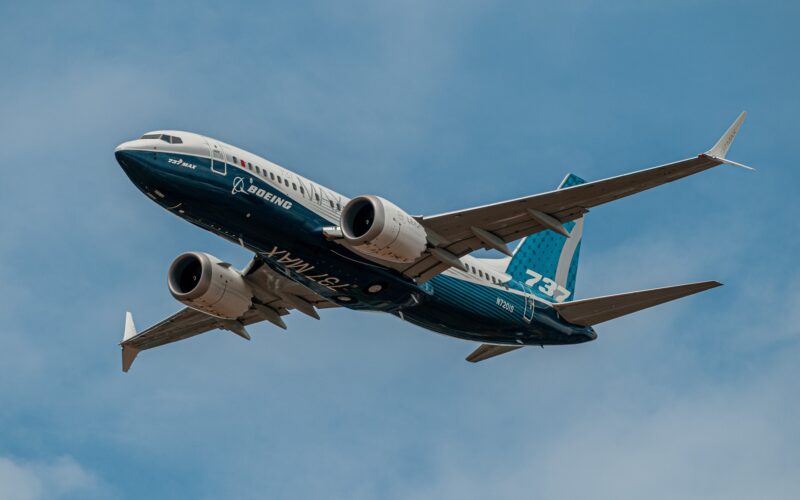A United States district court judge has allowed potentially defrauded investors to seek claims against Boeing for statements made after the second fatal 737 MAX crash in Ethiopia in March 2019.
Manish S. Shah, a judge in the District Court for the Northern District of Illinois, has been overseeing a case between a group of equity funds and Boeing and its former chief executive officer (CEO), Dennis Muilenburg, and chief financial officer (CFO), Gregory Smith.
The lawsuit, filed in July 2022, alleges that the company and its two executives made a total of 89 false and misleading statements regarding two fatal 737 MAX crashes in October 2018 and March 2019.
The misleading declarations include statements about the subsequent groundings of the type by the Federal Aviation Administration (FAA), as well as the recertification and return-to-service (RTS) timeline of the 737 MAX.
Lawyers defending Boeing and its former CEO and CFO said that the “plaintiffs failed to plead the essential elements of a securities fraud claim”, namely that they intentionally made false or misleading statements resulting in the equity funds losing money on Boeing’s stock.
In an opinion published on September 18, 2023, Judge Shah ruled that a motion filed by the planemaker and its executives to dismiss the lawsuit was partially granted, with the equity funds being allowed to proceed on claims of false and/or misleading statements made only after March 11, 2019.
At the time, Boeing issued a press release detailing the changes it had made following the first fatal 737 MAX crash in Indonesia in October 2018, saying that the company had been developing “software enhancement for the 737 MAX, designed to make an already safe aircraft even safer”. The update included changes to the infamous Maneuvering Characteristics Augmentation System or MCAS, as well as pilot displays and flight training procedures.
Two days later, the FAA grounded the 737 MAX.
Continuous misleading statements
The plaintiffs argued that the press release and statements that followed were misleading.
For example, the same statement, issued on March 11, 2019, was deemed materially misleading. The plaintiffs noted that at the time Boeing had “falsely stated that MCAS does not control the airplane during normal flight when it could operate during nearly the entire speed range for the 737 MAX, including at lower altitudes in and around takeoff and landing”.
In response, the defendants said that the company “expressly acknowledged the potential for erroneous activation of MCAS at times other than those for which it was designed”.
In the opinion, the judge found that the statement was not a clarification because it failed to disclose firstly, the conditions on how erroneous Angle of Attack (AoA) data activates MCAS. Secondly, the fact that MCAS could be activated erroneously during a normal flight was also not disclosed.
Subsequent actionable statements cover Boeing withholding information from the FAA during the certification of the 737 MAX, the initial training materials provided to flight crews and certification of the 737 MAX, as well as Boeing’s relationship with the FAA.
Furthermore, the plaintiffs pointed out that while then-FAA deputy administrator Daniel Elwell asked Boeing to slow down with talks of recertification progress, Muilenburg said that the company was looking at a RTS at the end of summer 2019.
“Plaintiffs allege that, considering Muilenburg’s meeting with Elwell, this statement was materially false and misleading, and Muilenburg knew this timeframe was false,” the opinion read.
The judge agreed with the plaintiffs, saying that the then-Boeing CEO presented a “misleading timeline”.
In general, the equity firms alleged that the company and its executives made several misleading statements about when the 737 MAX would fly commercially again.
The FAA ungrounded the aircraft type in November 2020, with American Airlines becoming the first US airline to fly the 737 MAX commercially in December 2020.
Meanwhile, Boeing and the US Department of Justice (DOJ) settled on fraud conspiracy charges related to the 737 MAX in January 2021. At the time, the company agreed to pay out a total of $2.5 billion, comprised of a $243.6 million criminal penalty, compensation payments to airlines of $1.77 billion, and a $500 million crash-victim beneficiary fund. In total, 346 people lost their lives during the two fatal crashes.
However, the January 2021 deferred prosecution agreement (DPA) with the DOJ meant that Boeing was immune from further prosecution regarding the 737 MAX.
In February 2023, a District Judge in the Northern District of Texas ruled that victims’ families cannot prosecute Boeing further, adding that he did not have the authority to lift the immunity.
“This court has immense sympathy for the victims and loved ones of those who died in the tragic plane crashes resulting from Boeing’s criminal conspiracy,” District Judge Reed O’Connor said at the time.

